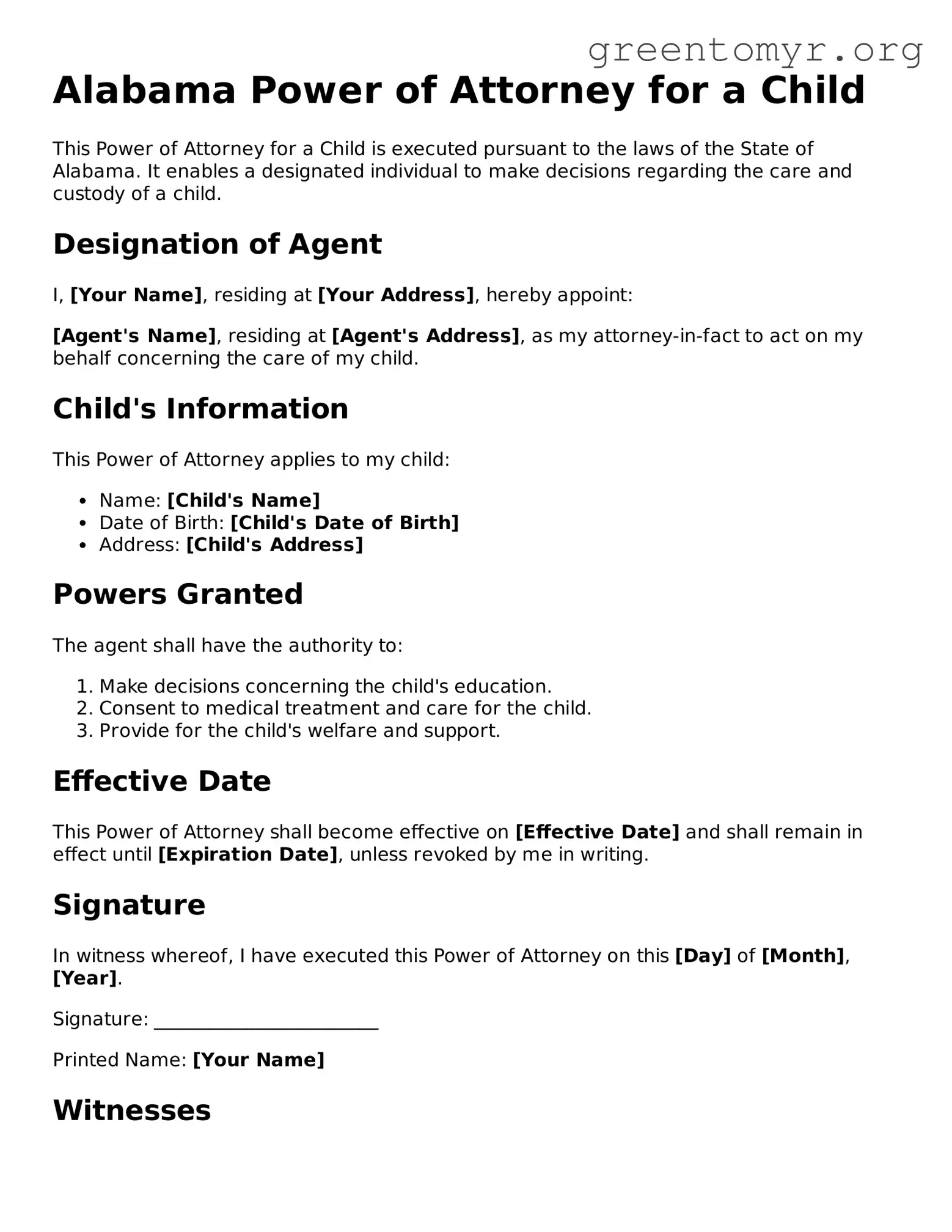Alabama Power of Attorney for a Child
This Power of Attorney for a Child is executed pursuant to the laws of the State of Alabama. It enables a designated individual to make decisions regarding the care and custody of a child.
Designation of Agent
I, [Your Name], residing at [Your Address], hereby appoint:
[Agent's Name], residing at [Agent's Address], as my attorney-in-fact to act on my behalf concerning the care of my child.
Child's Information
This Power of Attorney applies to my child:
- Name: [Child's Name]
- Date of Birth: [Child's Date of Birth]
- Address: [Child's Address]
Powers Granted
The agent shall have the authority to:
- Make decisions concerning the child's education.
- Consent to medical treatment and care for the child.
- Provide for the child's welfare and support.
Effective Date
This Power of Attorney shall become effective on [Effective Date] and shall remain in effect until [Expiration Date], unless revoked by me in writing.
Signature
In witness whereof, I have executed this Power of Attorney on this [Day] of [Month], [Year].
Signature: ________________________
Printed Name: [Your Name]
Witnesses
The undersigned witnesses attest that the principal appears to be of sound mind and under no duress in executing this Power of Attorney:
- Name: [Witness 1 Name], Signature: ________________________
- Name: [Witness 2 Name], Signature: ________________________
This document must be signed in the presence of a notary public. A notarial acknowledgment is recommended for verification and authenticity.
